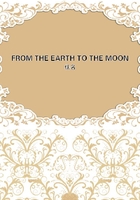
第16章
"I agree with you, my good friend; and, in fact, following this proportion for a projectile nine feet in diameter, weighing 30,000pounds, the gun would only have a length of two hundred and twenty-five feet, and a weight of 7,200,000 pounds.""Ridiculous!" rejoined Maston. "As well take a pistol.""I think so too," replied Barbicane; "that is why I propose to quadruple that length, and to construct a gun of nine hundred feet."The general and the major offered some objections; nevertheless, the proposition, actively supported by the secretary, was definitely adopted.
"But," said Elphinstone, "what thickness must we give it?""A thickness of six feet," replied Barbicane.
"You surely don't think of mounting a mass like that upon a carriage?" asked the major.
"It would be a superb idea, though," said Maston.
"But impracticable," replied Barbicane. "No, I think of sinking this engine in the earth alone, binding it with hoops of wrought iron, and finally surrounding it with a thick mass of masonry of stone and cement. The piece once cast, it must be bored with great precision, so as to preclude any possible windage. So there will be no loss whatever of gas, and all the expansive force of the powder will be employed in the propulsion.""One simple question," said Elphinstone: "is our gun to be rifled?""No, certainly not," replied Barbicane; "we require an enormous initial velocity; and you are well aware that a shot quits a rifled gun less rapidly than it does a smooth-bore.""True," rejoined the major.
The committee here adjourned for a few minutes to tea and sandwiches.
On the discussion being renewed, "Gentlemen," said Barbicane, "we must now take into consideration the metal to be employed.
Our cannon must be possessed of great tenacity, great hardness, be infusible by heat, indissoluble, and inoxidable by the corrosive action of acids.""There is no doubt about that," replied the major; "and as we shall have to employ an immense quantity of metal, we shall not be at a loss for choice.""Well, then," said Morgan, "I propose the best alloy hitherto known, which consists of one hundred parts of copper, twelve of tin, and six of brass.""I admit," replied the president, "that this composition has yielded excellent results, but in the present case it would be too expensive, and very difficult to work. I think, then, that we ought to adopt a material excellent in its way and of low price, such as cast iron. What is your advice, major?""I quite agree with you," replied Elphinstone.
"In fact," continued Barbicane, "cast iron costs ten times less than bronze; it is easy to cast, it runs readily from the moulds of sand, it is easy of manipulation, it is at once economical of money and of time. In addition, it is excellent as a material, and I well remember that during the war, at the siege of Atlanta, some iron guns fired one thousand rounds at intervals of twenty minutes without injury.""Cast iron is very brittle, though," replied Morgan.
"Yes, but it possesses great resistance. I will now ask our worthy secretary to calculate the weight of a cast-iron gun with a bore of nine feet and a thickness of six feet of metal.""In a moment," replied Maston. Then, dashing off some algebraical formulae with marvelous facility, in a minute or two he declared the following result:
"The cannon will weigh 68,040 tons. And, at two cents a pound, it will cost----""Two million five hundred and ten thousand seven hundred and one dollars."Maston, the major, and the general regarded Barbicane with uneasy looks.
"Well, gentlemen," replied the president, "I repeat what Isaid yesterday. Make yourselves easy; the millions will not be wanting."With this assurance of their president the committee separated, after having fixed their third meeting for the following evening.